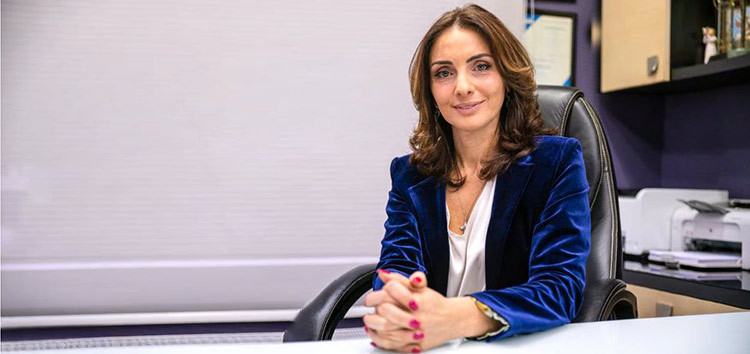
Tamara Chigogidze, founder and CEO of Georgia’s Radio Holding Fortuna, the country’s largest radio broadcasting company, has always believed in the importance of the media in shaping an inclusive society.
“I believe that if we recognise the role that mass media can play in promoting an inclusive society, then we as a broadcaster must also use our opportunities to leverage our network and our content to do this.”
This first radio station – Fortuna – was founded in 1996 by Guram Chigogidze, Tamara’s father, and she has part of its management ever since. Now, the company, which still belongs solely to the Chigogidze family, operates four radio stations and one music TV channel, attracting over 556,000 listeners a week – that’s half Georgia’s radio audience.
To keep up with the forefront of the market however, the company needed to continue to evolve. Through a project with the EBRD’s Women in Business programme – supported by the EU under its EU4Business initiative – they introduced a new digital strategy and developed a web platform and radio mobile app, which unites all four of their radio stations under one umbrella brand online.
One thing that Tamara feels passionate about is highlighting the active role of women in Georgia’s wine industry.
Georgia is particularly proud of its 8,000-year wine making tradition and has over 750 wine makers operating in the country, from commercial players to family cellars. Wine is closely linked to Georgia’s fast-growing tourism and hospitality sector. But it is generally regarded as a male-dominated industry.
Radio Holding Fortuna is now planning a multimedia programme to promote twelve women who run wine cellars and larger enterprises.
Tamara’s objective is ambitious: to be an advocate for the work women are already doing in this vital area of the economy, and to perhaps inspire other women enthusiastic about wine to take their passion into entrepreneurship.
Radio Holding Fortuna is one of the SMEs supported by the EBRD’s regional Women in Business Programme in Armenia, Azerbaijan, Belarus, Georgia, Moldova and Ukraine. The Programme provides finance and know-how to women-led businesses and has helped over 9,000 women entrepreneurs in the region to date. The Programme is funded by the EBRD, the European Union, Sweden and the EBRD Small Business Impact Fund (Italy, Japan, Korea, Luxembourg, Sweden, Switzerland, Taipei China and the USA).
